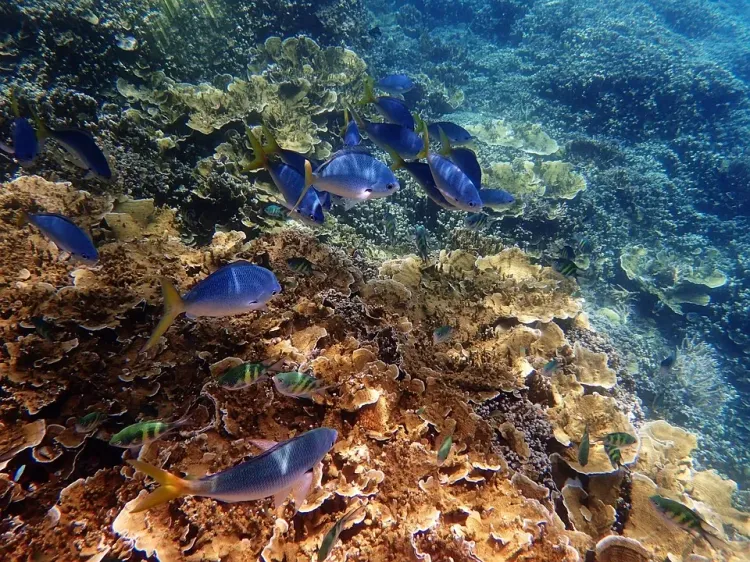Can Selective Breeding Save Coral Reefs?

Synopsis
Key Takeaways
- Selective breeding can enhance coral heat tolerance.
- Coral offspring from warmer regions show improved survival rates.
- The study provides a short-term strategy for reef protection.
- Immediate action is needed to combat climate change.
- Coral reefs are vital for biodiversity and coastal protection.
Sydney, June 9 (NationPress) Selectively breeding corals can greatly enhance their heat tolerance, providing a crucial short-term solution for the world’s endangered reef ecosystems as rising ocean temperatures threaten their survival due to climate change, a recent study revealed on Monday.
Researchers at Ningaloo Reef, a World Heritage site off the coast of Australia, successfully bred corals capable of withstanding higher temperatures. Like many reefs worldwide, Ningaloo faces severe threats from marine heatwaves and mass bleaching, as highlighted in a report by the Minderoo Foundation in Western Australia, which sponsored the research.
The study found that offspring from heat-tolerant coral parents, especially those from warmer reef areas, exhibited a survival rate under extreme heat stress that was double that of corals from cooler regions. This collaboration involved the Minderoo Foundation, the University of Western Australia, James Cook University, the University of Bremen, and Texas A&M University.
Principal Research Scientist at Minderoo Foundation, Kate Quigley, stated, “Coral offspring with at least one parent from warmer reefs showed significantly improved survival rates under heat stress.”
Andrew Forrest, co-founder of the Minderoo Foundation, emphasized that “This is the first successful demonstration of how selective breeding of Indian Ocean corals can enhance heat tolerance, and it represents a vital strategy for short-term reef conservation.”
Forrest also warned, “Immediate action is required to combat rising ocean temperatures to prevent the potential extinction of a majority of coral reefs globally within the next 50 years.”
Since 2023, mass bleaching has impacted 84% of the world’s reefs across over 82 countries and territories. In March 2025, Ningaloo and the Great Barrier Reef experienced simultaneous bleaching for the first time.
These findings are crucial for developing effective coral reef protection strategies as marine heatwaves become more severe, potentially buying time for reefs as the world transitions away from fossil fuels, the primary contributor to extreme climate effects, Quigley added.
Coral reefs are essential for the livelihoods of millions, safeguarding coastlines and supporting over a quarter of marine biodiversity, yet they have faced significant global declines.









